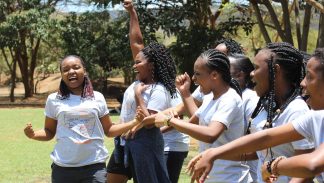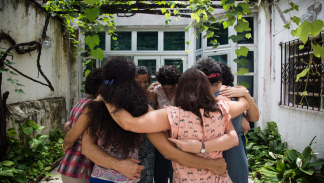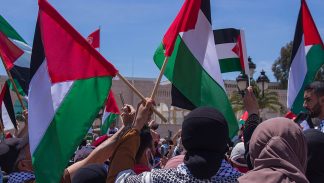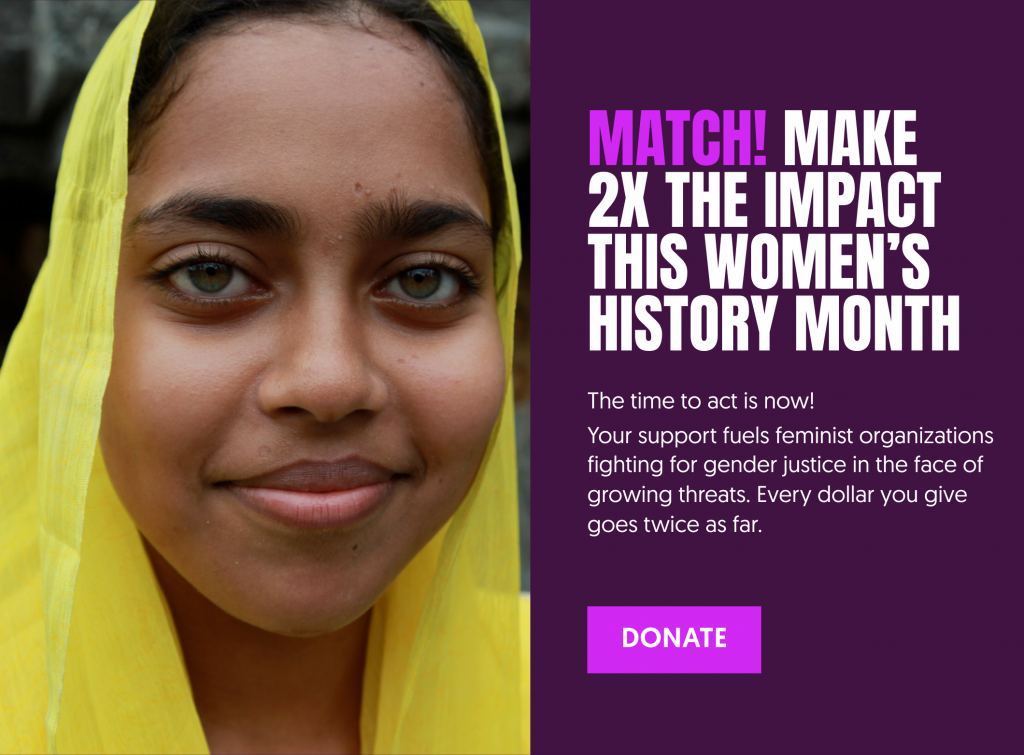Magdalena Kafiar
The hardest thing about challenging civil rights violations in Papua is proving they exist. The Indonesian government has thrown a cloak of silence over past and current injustices, which makes speaking out and fighting back much more difficult—and dangerous.
Magdalena (Magda) Kafiar, an indigenous Papuan and a church minister, has taken on the task of breaking the silence. In her work, she travels throughout the region to collect and register human rights violations, talk to women about their rights, and educate and advocate for justice and the people who defend it.
The Indonesian military and police restrict and often repress activists in the provinces. “Working in the church is a way to stay safe doing humanitarian work in Papua,” Magda explains. Her office receives reports of abuses and goes out to investigate them, creating vital records of a reality that powerful interests want to hide. She collects stories about past crimes carried out with impunity, as well as the current land grabs and environmental destruction that are drastically altering the land and the lives of its inhabitants.
“Indigenous women rely on the forests, on the rivers—on all of our natural surroundings for survival,” Magda states. “For profit, these private companies cleared the forests and polluted the rivers. Indigenous women’s lives have changed for the worse.”
In Papua, the influx of foreign companies to exploit the forestry and mineral riches is just the most recent threat to a population long besieged by political conflict and government neglect. Representatives from foreign companies will approach the men with enticements of cash and alcohol to gain title to their lands. Women in Papua are usually barred from owning land under customary laws that give ownership and management to their husbands. So although the women suffer the most from the loss of land and food sources, they have little power to stop it within the family.
Magdalena knows from childhood that injustice can come from the system. In fact, her father was a victim of military oppression. In 1969, Indonesia declared that Papua decided to relinquish their sovereignty to become citizens of Indonesia. The decision was contested by many Papuans, and as a result there was a military crack-down. “Almost all Papuans who were considered ‘threatening’ were arrested for no reason. I actually do not know the story for sure because I was born in 1981. I do know that every day, my father always drank and became reserved. I also heard that my father was jailed once. What really happened, I never knew.” Magdalena says that as a result of this family history, she’s determined to fight injustice every step of the way. “[Papuans] were always silenced. Whatever has happened to me should not be experienced by others; it should just stop at me.”
Women like Magda also confront powerful limitations in the tribal structures. “One of the challenges that indigenous women have to face is they don’t have bargaining power. Patriarchy has a very strong role in our tribe,” Magda explains. “The women prepare food for the men’s meetings. Women serve the men, but they are not involved in the decision-making.”
Magda believes that education can help break the silence and subjugation of women. Statistics are hard to come by, but she reports that the majority of Papuan women are functionally illiterate.
“For me, education is the key. The problems we’ve faced and the land grabbing began with fraud committed by the corporations because they know the owners of customary rights cannot read or write.” She teaches women to read. In areas where the people cannot read or write, she uses films and pictures to aid in understanding.
News has a hard time getting in or out of Papua. The Indonesian government has placed tight restrictions on foreign media’s access to the region and has kicked out most international aid organizations. The local press tends to side with the corporations to cover up or vilify human rights protests. This powerful alliance between the government, media, and corporations puts activists, like Magda, at great risk.
It takes a lot of courage to raise your voice where voices are silenced, but Magda’s resolve is strong. “Although I know the danger, I keep the spirit and move forward,” she affirms. “I have to struggle continuously to reveal the injustices in Papua.”
#DearDefendHer
Show Magda and women human rights defenders around the world that you stand with them! Sign our #DearDefendHer solidarity statement today.
Although I know the danger, I keep the spirit and move forward. I have to struggle continuously to reveal the injustices in Papua.”Magdalena Kafiar



